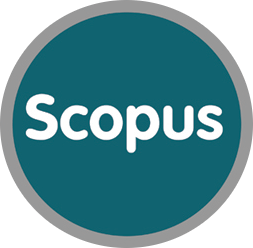MICROWAVE IRRADIATION OPTIMIZATION FOR EFFICIENT LIGNIN REMOVAL FROM COCOA SHELL WASTE USING ALKALI
DOI:
https://doi.org/10.31436/iiumej.v22i2.1608Keywords:
Cocoa shell waste, microwave assisted, alkali treatment, lignin removal, response surface methodologyAbstract
This paper reports a study to determine the optimum conditions of microwave in assisting alkali treatment for removing lignin from cocoa shell waste (CSW). The CSW was mixed with 5% of NaOH solution at the ratio of 1: 10 of weight to volume of the alkaline before being irradiated in a microwave oven. Various microwave powers (200-400 W), temperature settings (60-80 °C) and irradiation times (10-20 min) were tested on 15 samples set by the Box-Behnken design. The lignin removal was analysed using a 72 % sulfuric acid treatment method. A quadratic equation was employed to the response surface and statistical analysis conducted to confirm the adequacy of the model. The plots show that the optimum microwave conditions are 400 W, 76 °C and 19 min, which were capable to remove 86.57% of lignin. Thermogravimetric analysis and micrographs revealed different decomposition temperature of lignin and morphology of extensively-pored surface of treated CSW, respectively.
ABSTRAK: Kajian ini adalah berkaitan penentuan keadaan optimal ketuhar gelombang mikro bagi membantu menyingkirkan lignin daripada sisa kulit biji koko (CSW) menggunakan rawatan alkali. CSW dicampurkan dengan larutan NaOH 5 % pada nisbah 1:10 berat kepada isipadu larutan alkali sebelum campuran dipanaskan ke dalam ketuhar gelombang mikro. Pelbagai keadaan ujian dibuat pada ketuhar gelombang mikro seperti tenaga (200-400 W), suhu ketuhar (60-80 °C) dan masa pemanasan (10-20 min) ke atas 15 sampel mengikut reka bentuk statistik Box-Behnken. Kadar penyingkiran lignin ditentukan dengan menggunakan kaedah rawatan larutan asid sulfurik berkepekatan 72 %. Persamaan kuadratik telah digunakan ke atas permukaan respon dan analisis statistik telah dilakukan bagi memastikan kesesuaian model. Plot-plot menunjukkan keadaan optima ketuhar gelombang mikro adalah pada 400 W, 76 °C dan 19 min iaitu berupaya menyingkirkan sebanyak 86.57% lignin. Analisis thermogravimetri dan mikrograf masing-masing menunjukkan perbezaan suhu penguraian lignin dan morfologi permukaan CSW yang dirawat didapati berliang dengan banyaknya.
Downloads
Metrics
References
Balentic JP, A?kar ?, Jokic S, Jozinovic A, Babic J, Mili?evic B, Ubaric D, Pavlovic N. (2018) Cocoa shell: A by-product with great potential for wide application. Molecules, 23 (6): 1-14. doi: 10.3390/molecules23061404. DOI: https://doi.org/10.3390/molecules23061404
Handojo L, Triharyogi H, Indarto A. (2019) Cocoa bean shell waste as potential raw material for dietary fiber powder. Int J Recycl Org Waste Agric., 8: 485-491.
doi: 10.1007/s40093-019-0271-9 DOI: https://doi.org/10.1007/s40093-019-0271-9
Joki? S, Gagi? T, Knez E, Ubari? D, Kerget M. (2018) Separation of active compounds from food by-product (Cocoa Shell) using subcritical water extraction. Molecules, 23(6): 1408. doi: 10.3390/molecules23061408 DOI: https://doi.org/10.3390/molecules23061408
Fioresi F, Vieillard J, Bargougui R, Bouazizi N, Fotsing PN, Woumfo ED, Brun N, Mofaddel N, Le Derf F. (2017) Chemical modification of the cocoa shell surface using diazonium salts. Journal of Colloid and Interface Science, 494: 92-97. doi: 10.1016/j.jcis.2017.01.069. DOI: https://doi.org/10.1016/j.jcis.2017.01.069
Foon CS, May CY, Liang YC, Ngan MA, Basiron Y. (2005) Palm biodiesel: Gearing towards Malaysian biodiesel standards. Palm oil developments (POD) 42: 28-34.
Rojo-Poveda O, Barbosa-Pereira L, Zeppa G, Stévigny C (2020) Cocoa bean shell—a by-product with nutritional properties and biofunctional potential. Nutrients 12(4): 1-29.
doi: 10.3390/nu12041123. DOI: https://doi.org/10.3390/nu12041123
Mohammed L, Ansari MNM, Pua G, Jawaid M, Islam MS. (2015) A review on natural fiber reinforced polymer composite and its applications. Int J Polym Sci. 243947.
doi: 10.1155/2015/243947 DOI: https://doi.org/10.1155/2015/243947
Balaji A, Karthikeyan B, Sundar Raj C (2015) Bagasse fiber – The future biocomposite material: A review. Int. J. ChemTech Res, 7 (1): 223-233.
Sood M, Dwivedi G. (2018) Effect of fiber treatment on flexural properties of natural fiber reinforced composites: A review. Egypt J Pet., 27(4): 775-783.
doi: 10.1016/j.ejpe.2017.11.005 DOI: https://doi.org/10.1016/j.ejpe.2017.11.005
Husseinsyah S, Marliza MZ, Selvi E. (2014) Biocomposites from polypropylene and corn cob: Effect maleic anhydride grafted polypropylene. Advances in materials Research, 3(3): 129-137. DOI: https://doi.org/10.12989/amr.2014.3.3.129
Laghari SM. Isa MH, Abdullah A, Laghari AJ, Saleem H. (2014) Microwave individual and combined pre-treatments on lignocellulosic biomasses. IOSR J Eng., 4(2): 14-28.
doi: 10.9790/3021-04261427 DOI: https://doi.org/10.9790/3021-04261427
Nomanbhay SM, Hussain R, Palanisamy K. (2013) Microwave-assisted alkaline pretreatment and microwave assisted enzymatic saccharification of oil palm empty fruit bunch fiber for enhanced fermentable sugar yield. Journal of Sustainable Bioenergy Systems, 3(1): 7-17. doi: 10.4236/jsbs.2013.31002. DOI: https://doi.org/10.4236/jsbs.2013.31002
Kucharska K, Rybarczyk P, Ho?owacz I, ?ukajtis R, Glinka M, Kami?ski M. (2018) Pretreatment of lignocellulosic materials as substrates for fermentation processes. Molecules 23(11): 1-32. doi: 10.3390/molecules23112937. DOI: https://doi.org/10.3390/molecules23112937
Rajesh M, Pitchaimani J, Rajini N. (2016) Free Vibration characteristics of banana/sisal natural fibers reinforced hybrid polymer composite beam. Procedia Engineering, 144: 1055-1059. doi: 10.1016/j.proeng.2016.05.056. DOI: https://doi.org/10.1016/j.proeng.2016.05.056
Budiyono, Wicaksono A, Rahmawan A, Hawali Abdul Matin H, Gumilang Kencana Wardani L, Djoko Kusworo T, Sumardiono S. (2017) The effect of pretreatment using sodium hydroxide and acetic acid to biogas production from rice straw waste. MATEC Web Conf. doi: 10.1051/matecconf/201710102011 DOI: https://doi.org/10.1051/matecconf/201710102011
Modenbach AA, Nokes SE. (2014) Effects of sodium hydroxide pretreatment on structural components of biomass. Transactions of the ASABE, 57(4): 1187-1198.
doi: 10.13031/trans.57.10046. DOI: https://doi.org/10.13031/trans.57.10046
Sombatpraiwan S, Junyusen T, Treeamnak T, Junyusen P. (2019) Optimization of microwave?assisted alkali pretreatment of cassava rhizome for enhanced enzymatic hydrolysis glucose yield. Food and Energy Security (October 2018): e00174.
doi: 10.1002/fes3.174. DOI: https://doi.org/10.1002/fes3.174
Agu OS, Tabil LG, Meda V, Dumonceaux T, Mupondwav E. (2019) Pretreatment of Crop Residues by Application of Microwave Heating and Alkaline Solution for Biofuel Processing: A Review. Renew Resour Biorefineries. doi: 10.5772/intechopen.79103 DOI: https://doi.org/10.5772/intechopen.79103
Ethaib S, Omar R, Mazlina M, Radiah A, Syafiie S, Harun MY. (2016) Effect of microwave-assisted acid or alkali pretreatment on sugar release from Dragon fruit foliage. Int. Food Res. J., 23 (Suppl): S149-S154
Safari A, Karimi K, Shafiei M. (2017) Dilute alkali pretreatment of softwood pine: A biorefinery approach. Bioresource Technology, 234: 67-76.
doi: 10.1016/j.biortech.2017.03.030. DOI: https://doi.org/10.1016/j.biortech.2017.03.030
Lai L, Idris A, Yusof NM. (2014) Lignin extraction from oil palm trunk by microwave-alkali technique. Malaysian Journal of Fundamental and Applied Sciences, 10(2): 59-64. DOI: https://doi.org/10.11113/mjfas.v10n2.56
Duan D, Ruan R, Wang Y, Liu Y, Dai L, Zhao Y, Zhou Y, Wu Q. (2018) Microwave-assisted acid pretreatment of alkali lignin: Effect on characteristics and pyrolysis behavior. Bioresour. Technol., 251: 57-62. doi: 10.1016/j.biortech.2017.12.022 DOI: https://doi.org/10.1016/j.biortech.2017.12.022
Vardhini KJV, Murugan R, Selvi CT, Surjit R. (2016) Optimisation of alkali treatment of banana fibres on lignin removal. Indian Journal of Fibre and Textile Research, 41: 156-160.
Yang H, Yan R, Chen H, Zheng C, Lee DH, Liang DT. (2006) In-depth investigation of biomass pyrolysis based on three major components: Hemicellulose, cellulose and lignin. Energy & Fuels, 20(1): 388-393. doi: 10.1021/ef0580117. DOI: https://doi.org/10.1021/ef0580117
Sushmitha D, Suranai S. (2019) Microwave-assisted alkali-peroxide treated sawdust for delignification and its characterisation. in: Waste Valoris. Recycl. Singapore, Springer Singapore. pp 527–537. DOI: https://doi.org/10.1007/978-981-13-2784-1_50
Waters CL, Janupala RR, Mallinson RG, Lobban LL. (2017) Staged thermal fractionation for segregation of lignin and cellulose pyrolysis products: An experimental study of residence time and temperature effects. Journal of Analytical and Applied Pyrolysis, 126: 380-389. doi: 10.1016/j.jaap.2017.05.008. DOI: https://doi.org/10.1016/j.jaap.2017.05.008
Yew BS, Muhamad M, Mohamed SB, Wee FH. (2019) Effect of alkaline treatment on structural characterisation, thermal degradation and water absorption ability of coir fibre polymer composites. Sains Malaysiana, 48(3): 653-659. doi: 10.17576/jsm-2019-4803-19. DOI: https://doi.org/10.17576/jsm-2019-4803-19
Pua FL, Sajab MS, Chia CH, Zakaria S, Rahman IA, Salit MS. (2013) Alkaline-treated cocoa pod husk as adsorbent for removing methylene blue from aqueous solutions. Journal of Environmental Chemical Engineering, 1(3): 460-465. doi: 10.1016/j.jece.2013.06.012. DOI: https://doi.org/10.1016/j.jece.2013.06.012
Downloads
Published
How to Cite
Issue
Section
License
Copyright (c) 2021 IIUM Press

This work is licensed under a Creative Commons Attribution-NonCommercial 4.0 International License.






















